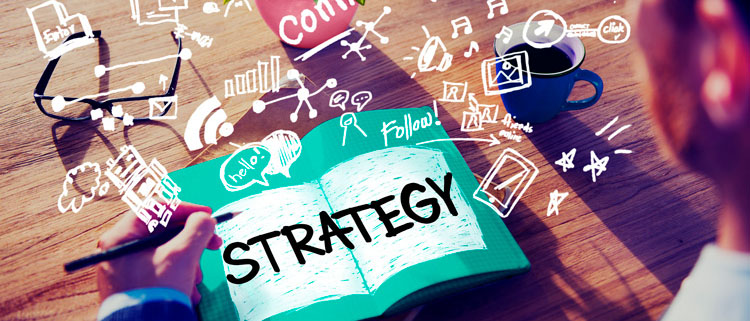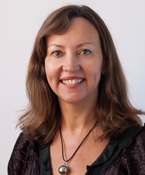
“No, we don’t have a Facebook page! Why should we? We communicate directly with our members and publish newsletters. For us, Facebook seems to be at the best pointless, and at the worst horribly intimidating!”
Does this ring a bell? Probably, as it concerns a large number of scientific societies and maybe even yours! It illustrates a real dilemma: how to get the best out of social media networks, which simultaneously seem so tempting, but also so difficult to control? Do they bring any real benefits?
Twitter, Facebook, YouTube, LinkedIn, Instagram… This article is the first of a series designed to help you get a better understanding of social media, and what it can do for your society. Read on: the opinion of our experts leaves no room for doubt…
What if the risk wasn’t the one you imagined?
When social media first appeared 15 years ago, it was aimed at individuals looking to connect with each other. Very soon, marketers realised the potential of these tools which could circulate information at a breakneck speed, even though the somewhat negative term ‘viral’ - often used when talking about social media - still conjures up the danger of seeing unwanted information circulate uncontrollably online. But our relationship with information has totally changed, triggering the rapid adoption of a ‘share’ and ‘like’ culture, which means that companies have had to adapt accordingly.
Over time, digital experts have acquired a better understanding of the strengths and weaknesses of these tools. The pitfalls are better known and can be circumvented. In a nutshell the paradigm has evolved, and not being present on social media today could be riskier than the contrary!
The healthcare professional is digital native – make sure you are in tune with your audience!
In the medical field, certain communities have been active on social networks for a fair amount of time. They share, comment and exchange information relating to congresses, therapeutical strategies, innovation and clinical cases… the very example of collective intelligence and knowledge sharing.
Furthermore, in 2014, the Digital Tipping Point was passed. There are now more physicians who studied medicine during the era of internet than did not. For the “NextGen” generation, social media is an integral part of their life, and the fact that they are doctors or scientists does not change their corresponding social behaviour.
Even the more reticent medical communities should realise that social networks should be an integral part of their communication strategy, albeit developing their own specific rules that cleverly combine openness and confidentiality.
Two key points to remember:
- By not being present or active on social media you lose a fantastic opportunity to make your society’s voice heard, to link up with members and to gain new ones, to expand your influence, to reinforce your authority and to connect with the new generation.
- If you choose to shun social media altogether, it can create the impression that you have something to hide or nothing to say, thereby leaving others with a greater share of voice. Social media can help you manage a crisis, and to turn a challenge into an opportunity
Isn’t my newsletter enough?
The newsletter that you periodically send out is a very useful tool for keeping existing members of your community up to date on your latest news. However, it is no longer enough to satisfy two of your vital needs:
- How to safeguard the link you have with your members, and to develop an even closer relationship with them?
- How to expand your community beyond the people you already know?
This is where social networks start playing an important role, because:
- Their users consult them daily: on average 1h22 per day!
- In essence, they allow you to share information and disseminate your content in a natural and organic way, multiplying your audience and amplifying your message because you are no longer the unique transmitter!
As a recognised authority for your community, consider that social media is a way to digitally enhance your role as an influencer and source of information for your members and other professionals in your field, who will naturally turn to you because of your reputation and expertise. Your ability to select, edit and share the most useful and pertinent content for them, whether you are the author or not, is precisely what will attract them to you. As time goes by, you will become an essential partner in their online search for information, because they know they can rely on you. Also, when the time comes, it is almost certainly your congress they will decide to attend…
Being visible and allowing yourself a more relaxed and even humorous tone of voice will project a more human image of your scientific society. This in turn will create proximity to your members and audience, perpetuating this virtual community that you need to be communicating with all year long,… not only during the time of your annual congress.

What next?
In order to kick-start your social media project, you may identify the need for the structured assistance of a professional to help you identify and reach your objectives. According to your needs and budget, everything is possible, from the purchase of a single service to the full delegation of your Facebook or Twitter account. Some digital professionals have specialised in the development of social media presence specifically for scientific societies. Our sister company Europa Digital & Publishing is one of these, and already manages the digital presence of over 20 different medical communities.
In conclusion…
If this article has convinced you and you’d like to give your social media presence a boost, know that you can ask your PCO (Professional Congress Organiser) to audit your visibility on internet. This will measure the volume and quality of your digital presence – an overview that we consider essential before any investment is made.
We recommend that you don’t forego this important analysis, which will most certainly reveal elements previously unbeknown to you… but that other people may already be talking about :-)
To be continued! In our next article, discover the direct benefits of having a digital strategy for your congress – before, during and after the event.

